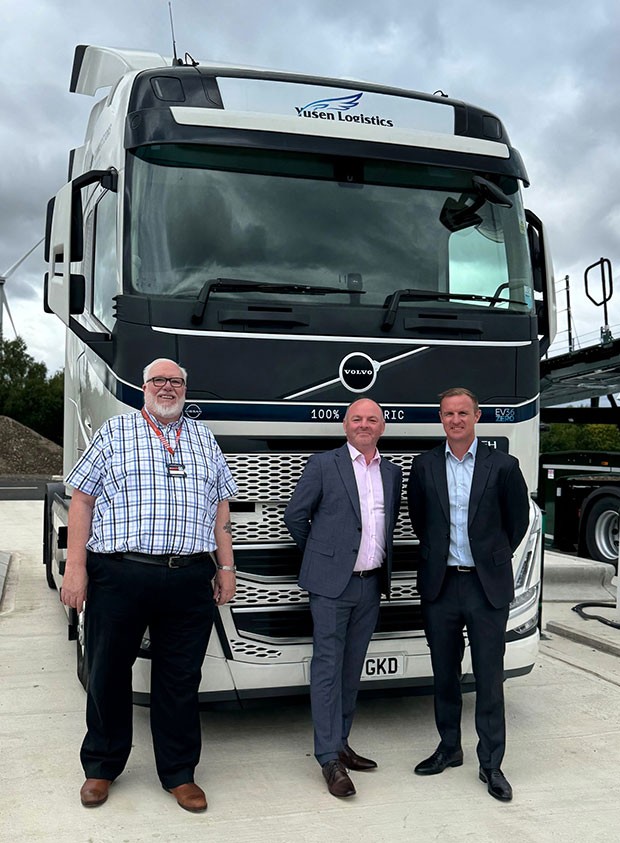Back in 2022, the idea was formed to establish a consortium focused on exploring ways to reduce CO2 emissions within the logistics sector. Nissan Motor Manufacturing UK (NMUK) approached Yusen Logistics to support their vision and join a partnership aimed at transforming the existing logistics solution from internal combustion engine (ICE) vehicles to electric vehicles (EVs).

This initiative required a new way of thinking, to develop a charging infrastructure that could accommodate a wide geographical area, while also reimagining route planning to minimise disruption caused by charging downtime.
Fast forward 36 months and Yusen Logistics has become the first haulier to deliver production parts directly into the Sunderland plant via eHGV, covering a total route trip of 703 kilometres, and providing a real-life testing of the solution before going live with the end-to-end scheme, which will deploy 10 eHGVs.
The Yusen Logistics (UK) warehouse in Derby, which is 100,000 sq ft and supports pallet and bulk storage, can also accommodate 183 trailers and now has the capacity to charge three eHGVs at any one time. At the Yusen Logistics Leeds site, which measures 51,000 sq ft and serves as a cross dock for Nissan with 70 trailer spaces, has also installed three 360kw and seven 43kw eHGV charging bays, allowing the site to charge 10 eHGVs. The average charger speed is 250kwh with an average time to charge being 2.5 hours to full capacity.
The project is part of Electric Freightway, funded by the UK Government through Innovate UK, and the trial runs from September 2025 to September 2030. Yusen Logistics UK and NUMK’s charging station will support a fleet of 25 trucks with a charging capacity of up to 360kW, saving around 1,500 tonnes of CO2 annually.
The trucks will collect parts from Nissan’s UK supply base, from the Midlands to the Port of Tyne which equates to more than 2.4 million kilometres travelled per year, fully electrified, saving 1,500 tonnes of CO2 annually.





Comments are closed.